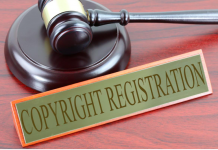This article is written by Raslin Saluja, from KIIT School of Law, Bhubaneswar. This article explores the various nuanced settings where website copyright protection becomes necessary and lays down the procedure for acquiring such copyright in the Indian regime.
Table of Contents
Introduction
The boon of the digital age is that there is an abundance of information available on the web and this ease of access has made the process of creating, publishing, sharing, using, and reusing data very conveniently. Even in today’s time and a world where data and media can be easily accessed with just one click, most businesses still do not copyright their precious work. Though they have a variety of options to protect their content, they typically copyright certain selected components of their website. It is very critical for businesses to be aware of their rights and the possible harms that their data may face. Data theft is real and the intellectual property laws are there to safeguard and prevent its misuse. The internet has changed the dynamics of accessing and publishing information. Many internet-based businesses thrive through the online promotion and publication of their content and therefore should definitely be aware of the harms and thereby the protection at their disposal.
What is copyright
Copyright is one of the forms of Intellectual Property Rights which usually refers to the work which is the result of an individual’s talent, labor, and creativity. It includes inventions, works of heritage, types of literary and artistic works, music, recordings, symbols, names, and pictures. It also extends its protection to other works such as software and website design. A specific definition under Section 13 of the Indian Copyright Act enumerates the list of works to which protection is provided. Copyright exclusively grants the owner of the work the right to create, sell and enjoy other benefits as per the creator’s rule. They protect the creator’s works from being reproduced, adapted, translated, circulated, and publicly performed without prior permission of the owner.
Infringement of copyright takes place where an unauthorized user tries to step into the shoes of the owner and enjoys the exclusive rights granted to such owners without their consent. Having registered copyright makes the process easier and smooth. Though it is not necessary to have it registered, the regime promotes incentivizing registration. That is because it helps in proving infringement and establishing priority as well as placing a public record of ownership over the data.
The copyrighted websites generally have on the bottom of the page, a terminology of the sorts of “Copyright 2018”, “All Rights Reserved” or “© 2019” which depicts the owner’s right over the content of the website. Though not everyone might include it on their website, it is in the best interest of all to add such a notice to avoid infringement. Making it expressly known on the website can help in deferring any potential infringements and removing the assumption that the content can be freely used.
Owner of such copyright
Usually, it is the creator who owns the rights over the work, however, the situation is tricky in cases where a work-for-hire arrangement in the form of an employer/employee relationship is established. Therefore such intricate details should be well negotiated and highlighted in the contract where someone else develops your website. Where the creation of a website is outsourced from contractors then those independent contractors might own the IP rights. Whereas, in cases where an employee of the business does it, specially hired for this purpose then generally the employer retains the ownership unless agreed otherwise.
Necessity
Though copyright does not per se protect the idea itself, it does protect the presentation of such an idea in different forms. A website is a unique reflection of a business’s vision and ethos to its clients. It is a valuable asset like any other business property. It acts as a very powerful tool for public relations and marketing purposes by attracting people’s interest in your work. It provides a structure to the data and content. Having copyright would ensure that the owner’s rights over their rightful creation are safeguarded. One can even explore the licensing options to gain financial benefits.
Why should you copyright your business website
If one is absolutely serious about their business and has managed to gain sufficient traction, following, and created a business with value then often people will try to replicate using their identity signs, quality data, and names. Therefore certain steps could be taken as precautionary measures to deter potential violation.
Guarding your rights
The Internet is a very openly accessible medium where data circulation is wide and quick. This has increased the chances of copying and hijacking other’s content and displaying them as your own. We often see illegal downloads making headlines costing the creators a huge amount of money. When a website has copyright, even downloading a picture from their page constitutes infringement. Further these illegal practices also hugely impact the market value of the original work.
Privacy remains a key issue in this digital age and raises major concerns in the areas of data integration, unethical data utilization, unauthorized data sharing, and public disclosure. Since websites are accessible worldwide, anyone could infringe or copy your content. There is not even a global unified system to deal with this difficulty. Though there are various international treaties that tend to bring together a single unified regime, there are way too many gaps to fill, the most prominent one being the enforcement.
A typical website generally contains blogs, articles, business information, photographs, music, videos, recordings, etc. The general trend is to usually register evergreen materials rather than each and every part which might change and require updates from time to time. Once the content is modified, the owner will have to again apply for the copyright of that part. Though absolute protection against infringement issues is impossible, taking these steps is highly advisable.
Exercising control over the content
Another way to keep strict surveillance would be to use technological protection methods which would lessen/limit public access. For example, having terms and conditions and “I agree” pop-ups in the form of online agreements before granting access to the website’s content. Otherwise, other software products can also be protected by using technological methods of encryption which would disallow any unauthorized use of the content of the website.
Procedure for acquiring website copyright in India
One can safeguard their website by specifically using Copyright law, Patent law along with a domain and Secure Sockets Layer (SSL) certificate. In order to register a website, one has to first purchase a domain which is a specific name in the structure of Uniform Resource Locator (URL). All the URLs consist of a domain name which is unique to all such companies and its business and helps in locating a website. These domain names remain valid for a year and they have to be regularly renewed each year if the businesses wish to continue with the website, or else the website is auctioned or sold. Further having an SSL certificate helps in securing the personal information of the owner of the website from any data theft or hacking as SSL in terms of web browsers and servers acts as a protocol that assists in checking the authentication of data transfer taking place over the internet.
A typical website may contain content in the form of a logo design, text, audio files, videos, blogs and articles, brochures and manuals, etc. Any such thing of literary work can find protection under Section 4 of the Copyright Rules 1957. This section prohibits the publication or public use of work belonging to others which if done would then amount to copyright infringement. Section 13(1) elaborates on what sort of work is to be considered under the definition of original literary work.
Procedure
In order to get a copyright, one could either just hire an attorney or could easily do it on their own. One can choose to apply for copyright protection through offline mode or an online mode.
Offline mode
For offline mode, the application needs to be filled and sent to the Department of Copyright along with the prescribed fee. Once it is filed, a diary number is prescribed. Then the application moves to the examination department where if any error is found, the owner is informed to remove such defects. If any objection is raised by anyone against your copyright and if your work is found to be copyrighted already then such application gets rejected.
Online mode
In the online mode, one can visit the Government of India online portal on copyright i.e https://copyright.gov.in/, and can obtain copyright for their content. The steps are as follows:
- After visiting the official website for registration, the user needs to click on new copyright registration which requires the user to create an account on the platform.
- After that, the user can log in and apply for an application in the “e-Filing of Application” by clicking on “Click here for Online Copyright Registration”.
- It is then followed by a payment-making process after which a diary number is generated for future reference. Meanwhile one can keep checking the status of the application, which takes a maximum of 30 days for registration.
- Once it gets approved, the website gets registered and copyrighted and a certificate is provided regarding the same. But if any objection is raised or there exists copyright for the same work then the application might get rejected.
To further protect one’s website content, the website should properly elucidate its privacy policy (for giving details of the elements protected and using and storage of details), disclaimers ( in order to avoid liability based on the content provided), and “terms of use” (for the clarity of the users) so that users can avoid infringement. Despite such steps, if still, an infringement takes place one can opt for The Digital Millennium Copyright Act (DMCA) takedown notice for removing the infringed content. Steps for doing so involve issuing notice either through an attorney or on your own or by taking help of websites such as https://www.dmca.com. India specifically is not a signatory of any treaty but still has managed to implement DMCA type of laws that protects encryption-based systems and their integrity. The mentioned website requires creating an account and providing details such as signature, description of work infringed, identification of infringed work, a self declaratory statement of not granting permission for using the infringed content, and agreeing to penalty once terms acknowledgment is done.
The concealed elements of a website that have not been publicly disclosed like that of source codes, algorithms, programs, descriptions, logic flow charts, and other related database contents can all be covered and safeguarded by the Trade Secret law. Further, the business name, domain name, logo can all be protected under the trademarks.
Conclusion
It is highly advisable for the owner to take the proper necessary steps for protecting their website else one could just lose their IP rights. In order to avoid any legal difficulties later, one should be well prepared with all the formalities and requirements while setting up a website. Since it is for business purposes one can face huge losses. Without any proper restriction or protection, anyone could simply use your content and enjoy the benefits of your labor. Having registered copyright would help in imposing the necessary punishment under the copyright act in case fellow users breach your enjoyment rights. As mentioned above, the process to get it registered is very easy and simple. Before going ahead with having a copyright one just needs to ask themselves whether the website is just for hobby/ casual purposes or is it for generating valuable business. This would bring some clarity for taking the right direction. Further other members of the online community should also try to be vigilant and careful and avoid copying information/content of other fellow users otherwise they may land themselves in legal trouble in form of penalty or compensation or content shaming or charges of plagiarism.
References
Students of Lawsikho courses regularly produce writing assignments and work on practical exercises as a part of their coursework and develop themselves in real-life practical skills.
LawSikho has created a telegram group for exchanging legal knowledge, referrals, and various opportunities. You can click on this link and join:
 Serato DJ Crack 2025Serato DJ PRO Crack
Serato DJ Crack 2025Serato DJ PRO Crack










 Allow notifications
Allow notifications


